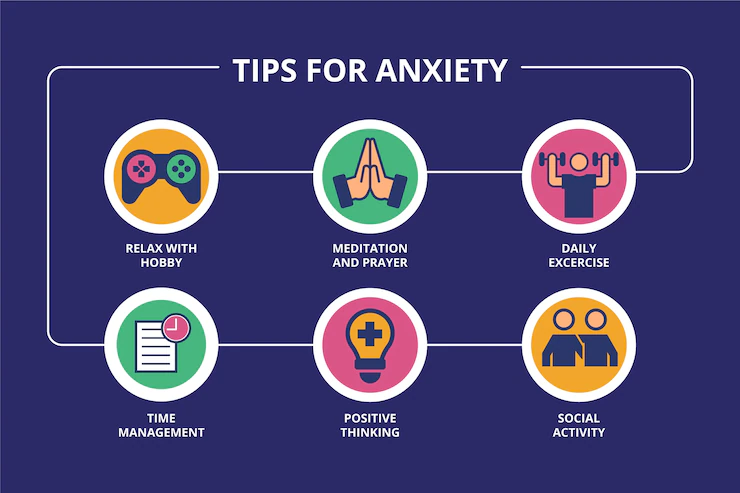In the face of life’s challenges and uncertainties, developing emotional resilience and mental strength is crucial for navigating through difficult times and maintaining overall well-being. Emotional resilience refers to the ability to adapt, bounce back, and thrive in the face of adversity. It involves building a strong foundation of mental strength to cope with stress, setbacks, and emotional upheavals. In this article, we will explore practical tips for enhancing emotional resilience and developing mental strength.
- Cultivate Self-Awareness:
Developing self-awareness is the first step in enhancing emotional resilience. Take time to reflect on your thoughts, emotions, and reactions to different situations. Understand your strengths, weaknesses, and triggers. Self-awareness allows you to recognize and address your emotions effectively.
- Practice Healthy Coping Mechanisms:
Engaging in healthy coping mechanisms is vital for building emotional resilience. Instead of resorting to harmful habits or avoidance, seek healthy outlets such as exercise, journaling, talking to a trusted friend or therapist, or engaging in hobbies that bring you joy. Find what works best for you and make it a regular part of your routine.
- Foster Positive Relationships:
Strong and supportive relationships play a significant role in building emotional resilience. Surround yourself with people who uplift and inspire you. Cultivate relationships built on trust, empathy, and mutual support. These connections provide a valuable network of emotional support during challenging times.
- Practice Emotional Regulation:
Emotional regulation involves recognizing and managing your emotions in a healthy and constructive way. Learn to identify and label your emotions accurately. Develop strategies for managing intense emotions, such as deep breathing exercises, mindfulness, or taking a pause before responding to a triggering situation. This helps you maintain composure and make rational decisions.
- Develop Problem-Solving Skills:
Enhancing your problem-solving skills strengthens your ability to face challenges head-on. Break down problems into smaller, manageable steps. Brainstorm potential solutions and evaluate their pros and cons. Seek advice from trusted individuals when needed. Developing problem-solving skills empowers you to find effective solutions and build confidence in your abilities.
- Practice Optimism and Positive Thinking:
Maintaining an optimistic outlook is crucial for building emotional resilience. Challenge negative thoughts and reframe them in a more positive light. Focus on your strengths and past successes. Cultivate a gratitude practice by acknowledging and appreciating the positive aspects of your life. Optimism helps you maintain hope and navigate difficult situations with resilience.
- Set Realistic Goals:
Setting realistic and achievable goals helps build confidence and fosters a sense of accomplishment. Break larger goals into smaller, attainable milestones. Celebrate each step forward and use setbacks as learning opportunities rather than discouragement. Setting goals provides a sense of purpose and direction.
- Practice Self-Compassion:
Self-compassion is essential for developing emotional resilience and mental strength. Treat yourself with kindness and understanding, especially during challenging times. Acknowledge that setbacks and mistakes are part of the human experience. Practice self-care and self-acceptance, and offer yourself the same compassion you would extend to others.
- Seek Professional Support:
If you find it challenging to enhance emotional resilience on your own, seeking professional support can be beneficial. Therapists and counselors can provide guidance, tools, and techniques tailored to your specific needs. They can help you develop healthy coping mechanisms, explore underlying issues, and build emotional strength.
- Cultivate a Growth Mindset:
Adopting a growth mindset is crucial for developing mental strength. Embrace challenges as opportunities for growth and learning. View failures as stepping stones toward success. Believe in your ability to learn, adapt, and improve. A growth mindset fosters resilience and empowers you to overcome obstacles.
Enhancing emotional resilience and mental strength is a lifelong journey. By cultivating self-awareness, practicing healthy coping mechanisms, fostering positive relationships, practicing emotional regulation, developing problem-solving skills, embracing optimism, setting realistic goals, practicing self-compassion, seeking professional support when needed, and cultivating a growth mindset, you can strengthen your ability to navigate through adversity and thrive. Remember that resilience is built through practice and perseverance. With time and effort, you can develop the tools and mindset needed to overcome challenges and lead a fulfilling and resilient life.










